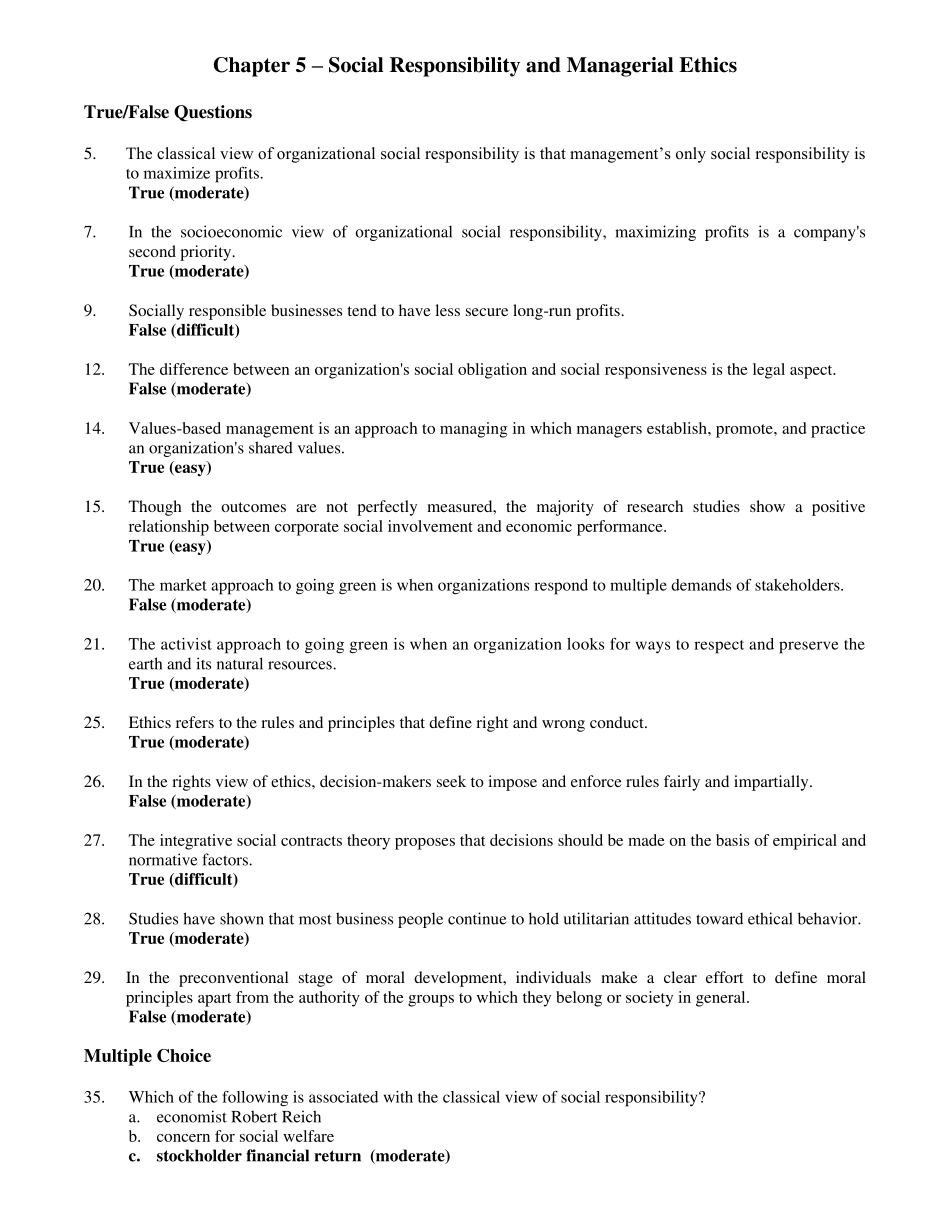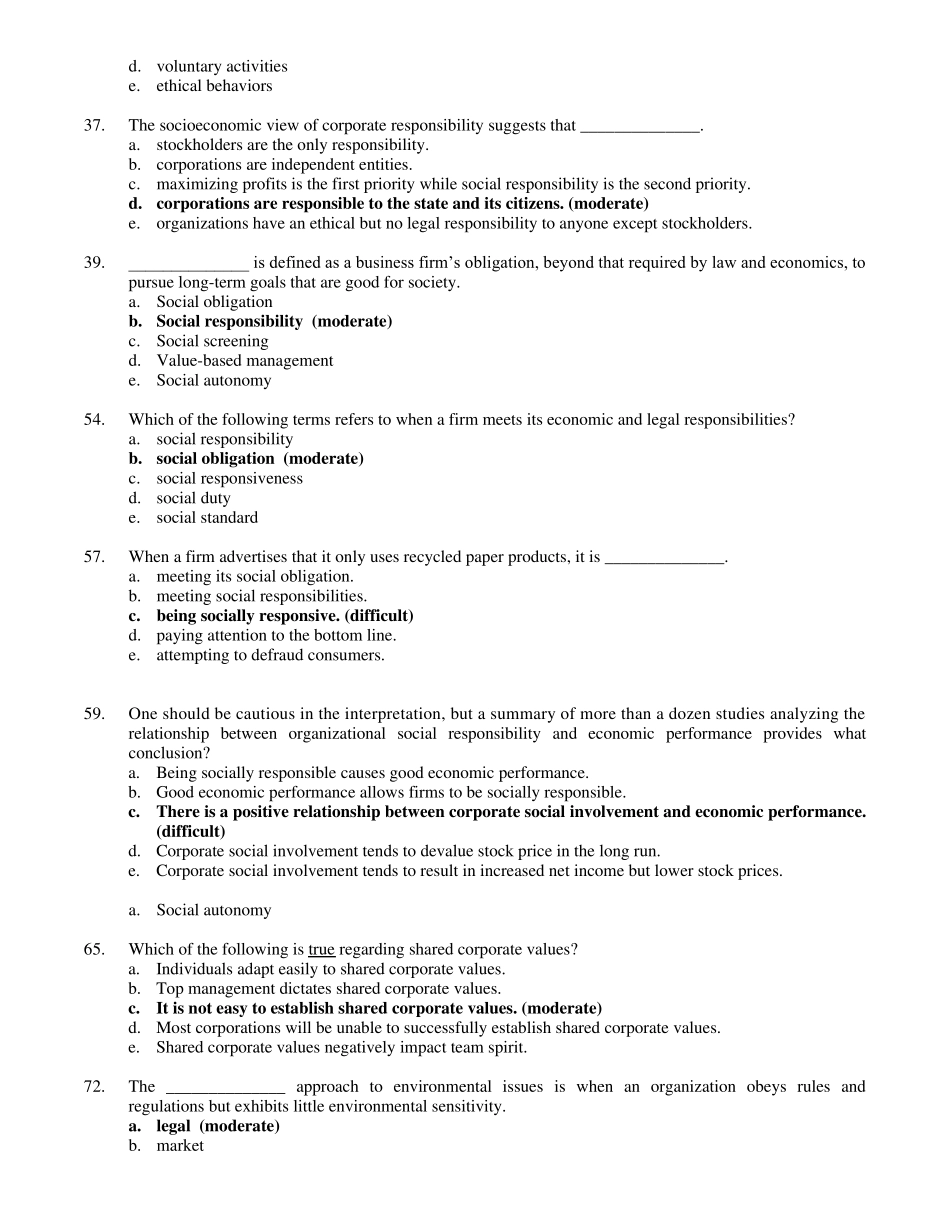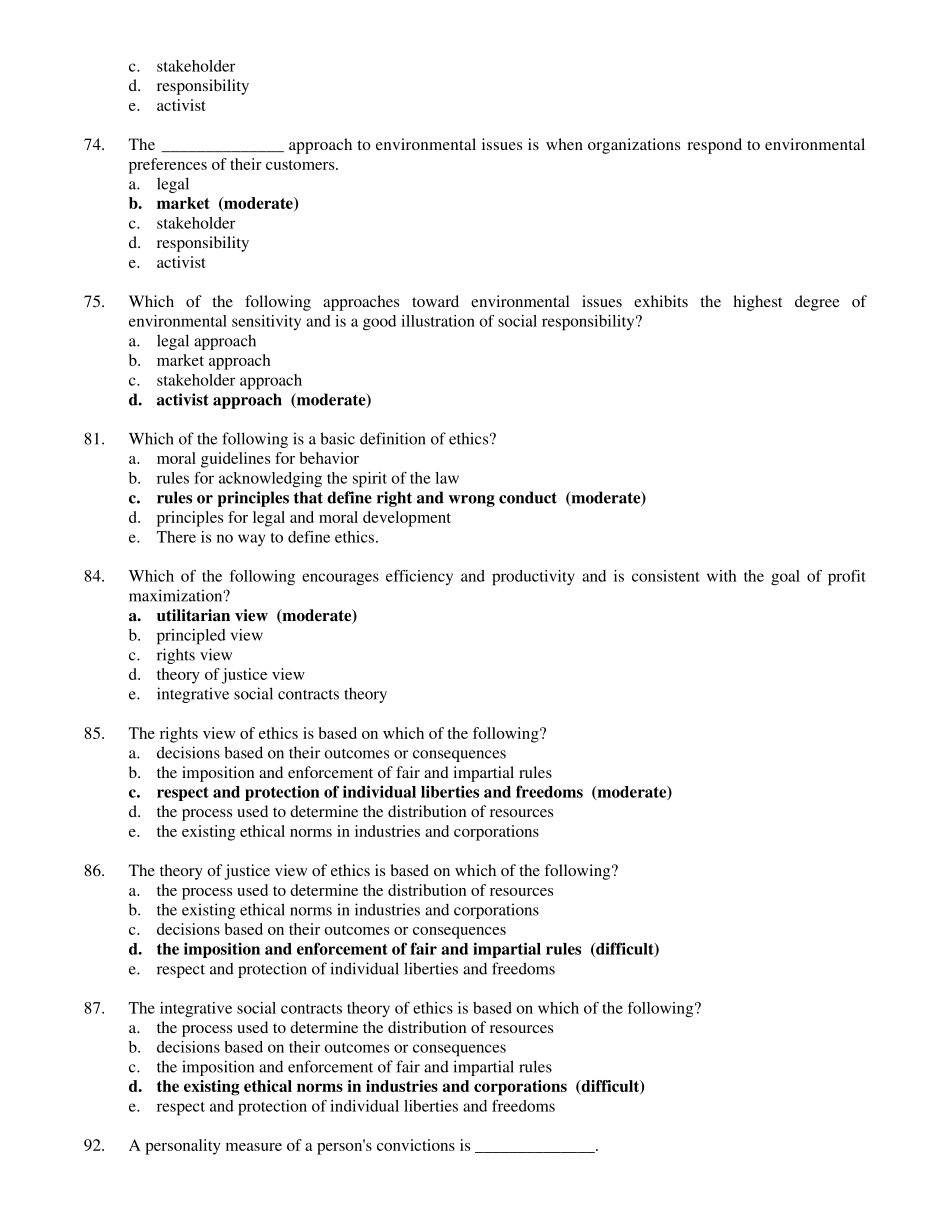Chapter 5 – Social Responsibility and Managerial Ethics True/False Questions 5. The classical view of organizational social responsibility is that management’s only social responsibility is to maximize profits. True (moderate) 7. In the socioeconomic view of organizational social responsibility, maximizing profits is a company's second priority. True (moderate) 9. Socially responsible businesses tend to have less secure long-run profits. False (difficult) 12. The difference between an organization's social obligation and social responsiveness is the legal aspect. False (moderate) 14. Values-based management is an approach to managing in which managers establish, promote, and practice an organization's shared values. True (easy) 15. Though the outcomes are not perfectly measured, the majority of research studies show a positive relationship between corporate social involvement and economic performance. True (easy) 20. The market approach to going green is when organizations respond to multiple demands of stakeholders. False (moderate) 21. The activist approach to going green is when an organization looks for ways to respect and preserve the earth and its natural resources. True (moderate) 25. Ethics refers to the rules and principles that define right and wrong conduct. True (moderate) 26. In the rights view of ethics, decision-makers seek to impose and enforce rules fairly and impartially. False (moderate) 27. The integrative social contracts theory proposes that decisions should be made on the basis of empirical and normative factors. True (difficult) 28. Studies have shown that most business people continue to hold utilitarian attitudes toward ethical behavior. True (moderate) 29. In the preconventional stage of m...


